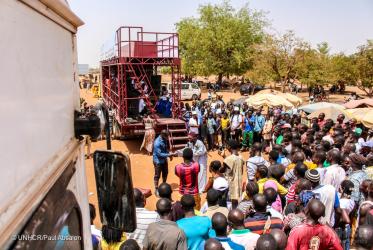Displaying 521 - 540 of 642
28 November 2016
WCC strengthens call to end statelessness
08 November 2016
WCC, LWF host recipients of Right Livelihood Award
02 November 2016
WCC holds discussion on religious freedom literacy and diplomacy
23 September 2016
WCC speaks on behalf of forcibly displaced persons
28 June 2016
New Executive Committee members elected in Trondheim
28 June 2016
God’s forgotten children
20 June 2016
WCC delegation visits Ukraine
09 June 2016
International affairs facilitator reflects on pilgrimage
31 March 2016










